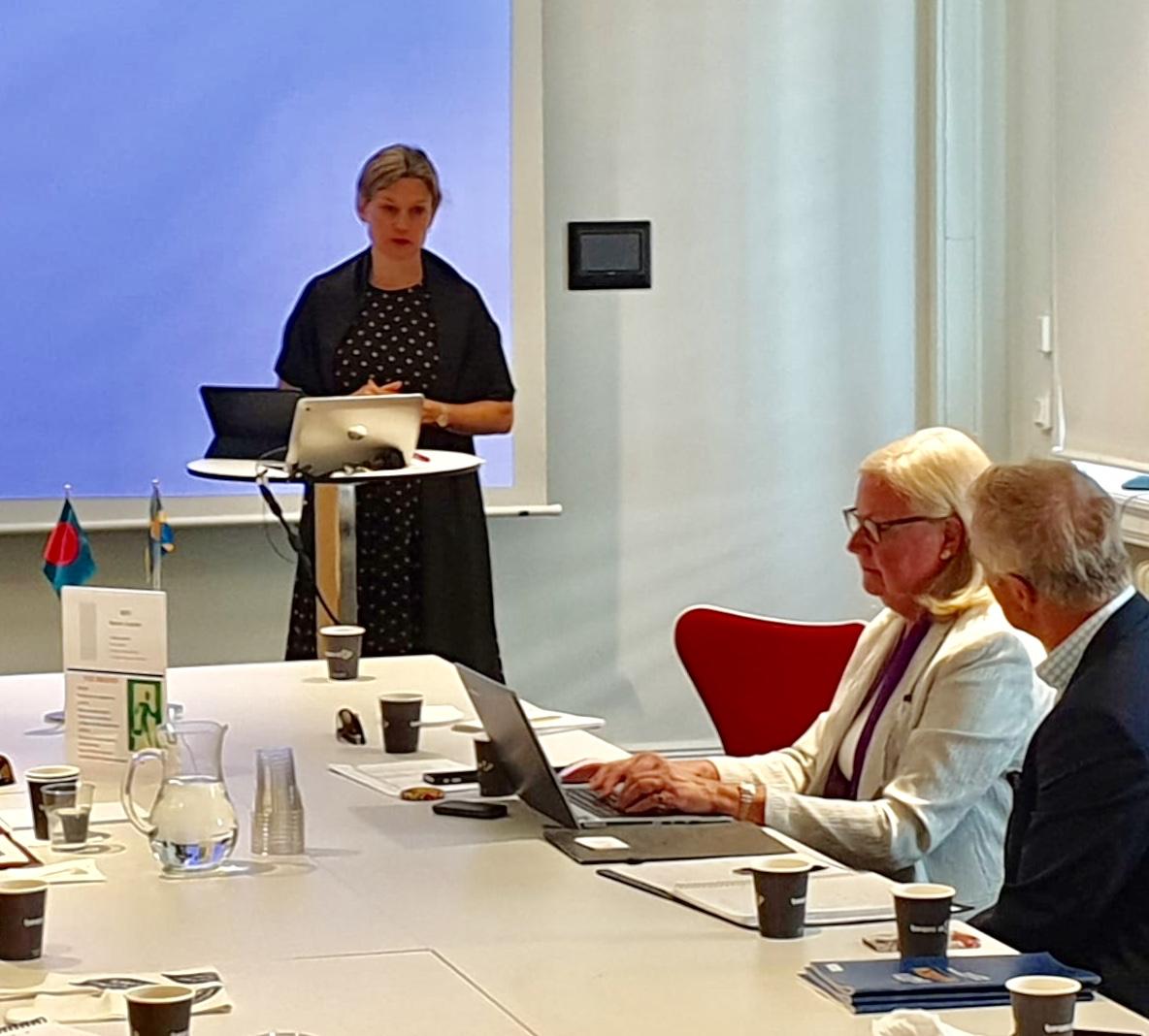On August 22nd, SBBC organized a breakfast seminar at Svensk Handel in Stockholm. The meeting commenced with a greeting by Maria Sandow who welcomed the participants on behalf of Svensk Handel.
Mizanur Khan, president of SBBC welcomed all participants and gave a special welcome to H.E. Ambassador Charlotta Schlyter. A bit of background on the council’s activities and a round of introductions followed suit.
Ambassador Charlotta spoke informally to the audience about the relation between Sweden and Bangladesh and economic and political situation in Bangladesh today.
Highlights from the Ambassador’s Presentations:
Bangladesh is the world’s seventh most populated country with 165 million inhabitants on one third of the country’s land area. 52% of the population are very young. Swedish Institute and other universities are attracting many students from Bangladesh. The number is growing on a yearly basis. The textile industry accounts for 80% of exports, Swedish companies are contributing a large portion to this figure. Sweden has good relations with Bangladesh and established its embassy in 1972 just after the country’s independence. The embassy in Dhaka is hosted in the same building as the other Nordic embassies. She mentioned that only Sweden has a Business council among the other Nordic countries. However, there is a Dhaka-based Nordic Chamber. Ms. Schlyter introduced Gabriel Hjort who is taking over Ylva Festin’s current position.
Swedish development corporation is still very active in Bangladesh and encompasses: Democracy, gender equality and human rights, Health and sexual and reproductive rights, Employment and economic development, Climate, environment and resilience and activities to improve the situation of Rohingya refugees and host communities in Cox’s Bazar.
Collaborations between Swedish and Bangladesh universities and other institutions are also developing gradually. Nordic Chamber of Commerce (NCCI) hosts good activities and continues to be a good platform for Nordic companies. Bangladesh ranked very low on ”Ease of doing business” report from World Bank. Swedish embassy together with other Nordic embassies are having constructive dialogue with Bangladeshi counterparts about the importance of improving the business environment. Sweden is also providing some know-how to Bangladesh on ways to develop its trade related policies as Bangladesh leaves the UN’s LDC list by year 2024.
Finally, Ms. Schlyter said that despite all these challenges our Nordic countries are continuing their activities and the possibilities are many. In response to a question from the audience she said that it is often good to visit the country before you initiate business ties. Companies who visit Bangladesh to explore business opportunities are welcome to be in contact with the Embassy.
Some questions were raised such as: regulations and tax regime on imports, whether or not it is important to have a local contact, how the embassy could be helpful in coordinating actors working on water issues and how widespread corruption is in Bangladesh. Ms. Schlyter replied from her end. She shared her own experiences in Bangladesh and said her first two years have been very interesting.
Mizanur thanked the Ambassador and her team for their continued support and cooperation. The meeting ended with mingle and networking among the participants.
